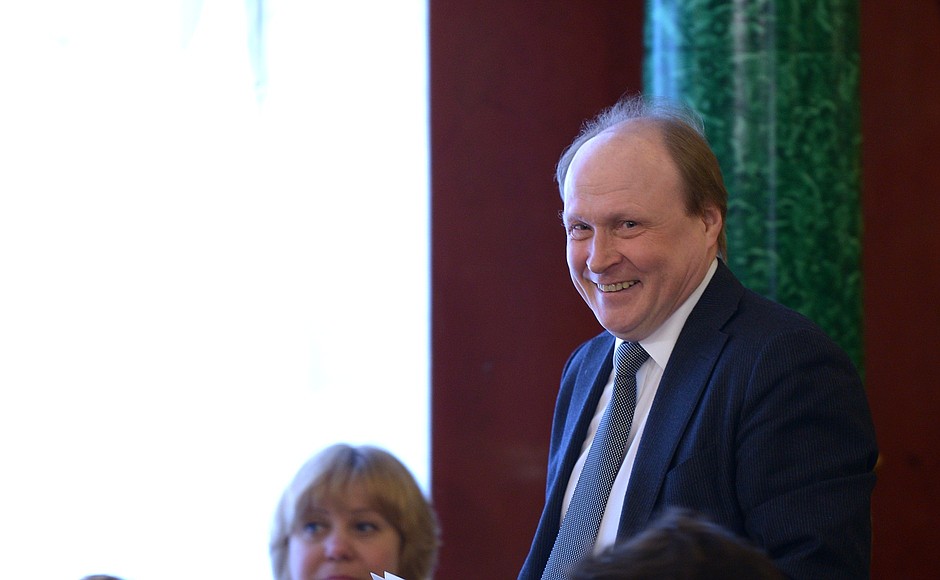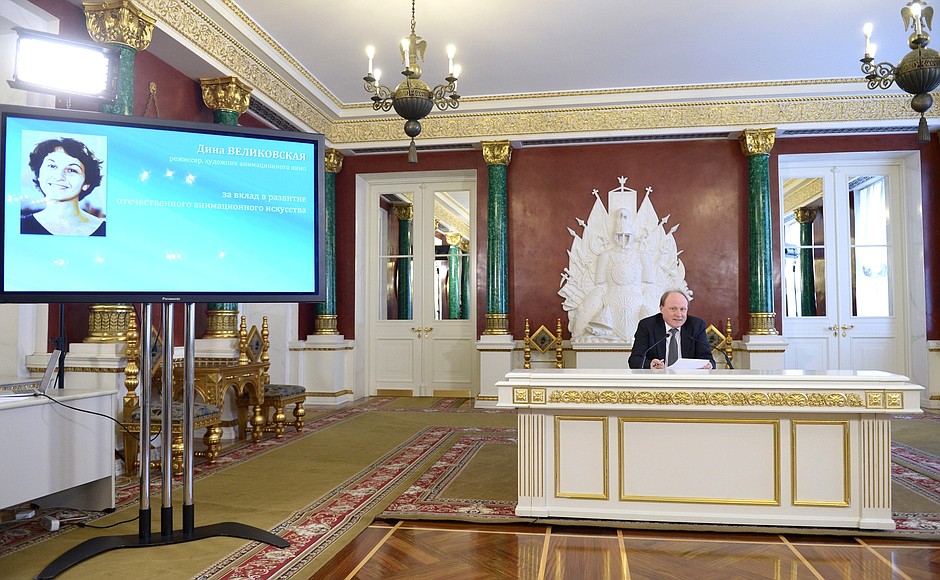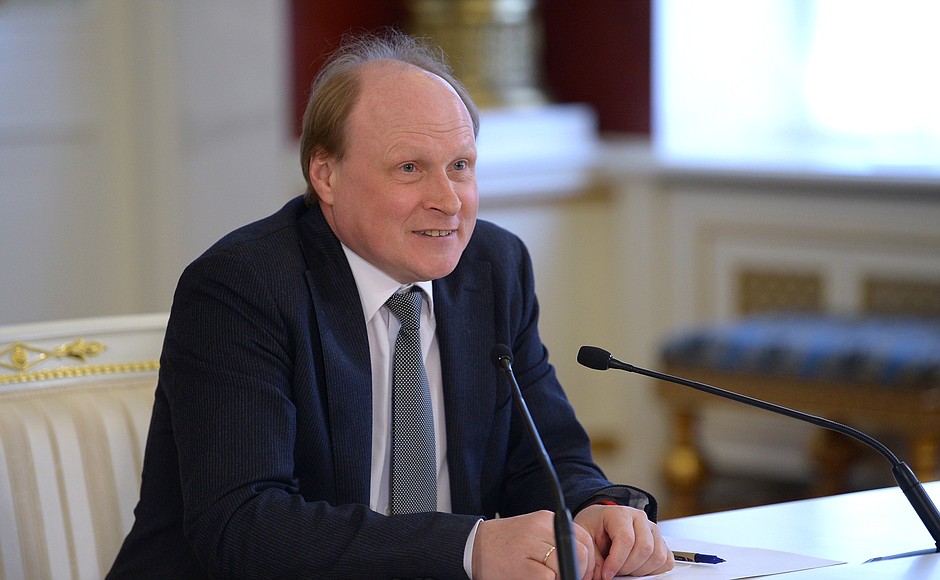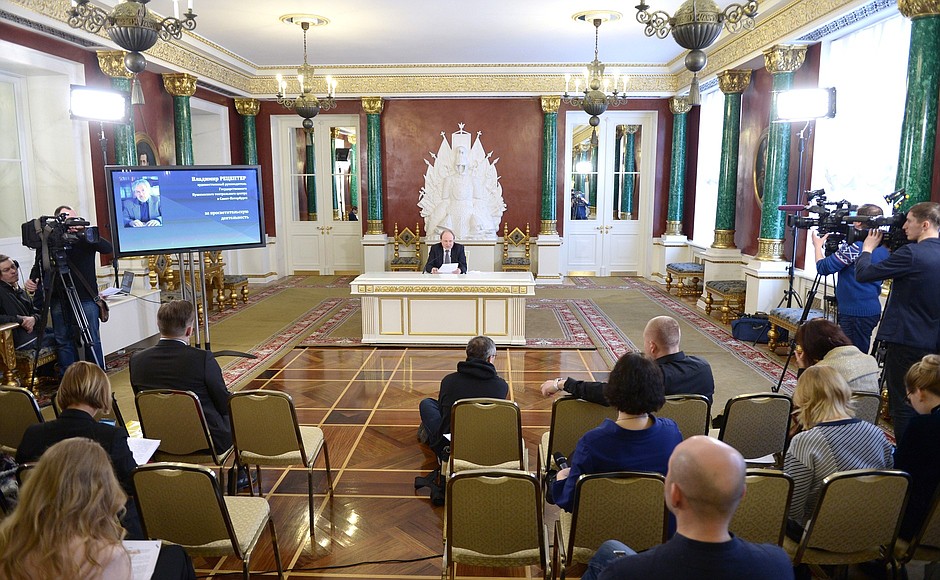Presidential Adviser Vladimir Tolstoy announced the winners at a special briefing.
* * *
Three young culture professionals from Moscow and the Voronezh Region won the 2017 prize for their projects in animation, choreography and museology.
Animated film director and artist Dina Velikovskaya has been awarded the prize for her contribution to the development of Russian animation.
Her debut film, The Bridge, shot while she was studying at the Gerasimov State Institute of Cinematography, instantly elevated her to the ranks of the masters. Every new film she makes – reverent, penetrating studies of people’s relationships and values – is an important event in the animation world and garners prizes at the most popular international festivals.
Sofya Kondratyeva, deputy director of research, head of the Museology Department at the Divnogorye Natural Architectural-Archeological Museum-Reserve, has been awarded the prize for creating and implementing innovative museum projects.
Sofya Kondratyeva, Candidate of Science (History), has been working at the Divnogorye Museum-Reserve since 2009. The projects she prepared combine a serious scientific approach, advanced technology and attention to different museum audiences. They were praised both by specialists and visitors. She works tirelessly to promote historical and cultural heritage and deal with the most pressing challenges related to instilling environmental, artistic and moral values.
Soloist of the State Academic Bolshoi Theatre Denis Rodkin has been awarded the prize for his contribution to preserving, promoting and popularising the achievements of Russian choreography.
Denis Rodkin’s successful career began when the graduate of the choreography school at the Moscow State Academic Theatre of Dance Gzhel was invited to join the Bolshoi Theatre company. Thanks to his creative and artistic professionalism, talent, hard work and pursuit of perfection, he was dancing lead roles in classical and modern ballets just three years later, becoming the leading dancer of Russia’s main theatre in 2015. In addition to his tireless creative activity, he is involved in social and philanthropic projects for children and teens.
* * *
Three young culture professionals from Moscow, St Petersburg and Nizhny Novgorod have been awarded the 2017 prize for writing and art for children and young people for their projects in music, theatre and arts education.
Head of the St Petersburg Pushkin State Theatre Centre Vladimir Retsepter has been awarded the prize for educational activity.
The Pushkin Theatre Centre he heads has been researching, publishing and touring for more than 25 years. In 2006, the graduates of Retsepter’s course created the Pushkin School Theatre. The theatre’s performances are a remarkable blend of literature, stage design, science, graphic art, traditional texts and new theatre forms. The signature directing style brings classical works closer to today’s young audience and promotes classical Russian literature, history and culture.
Composer Alexei Rybnikov has been awarded the prize for his contribution to Russian music.
For almost half a century works by Alexei Rybnikov for children and young people have been considered masterpieces of Russian music: his bright, lively and sincere music can be heard in over 80 films and cartoons. The iconic rock operas – Star and Death of Joaquin Murieta and Juno and Avos – are legendary in the history of Russian musical theatre. Beyond the famous musicals and rock operas, though, the composer has recently written works for young audiences performed by young musicians.
Vladimir Chikishev, director of the Nizhny Novgorod boarding school for deaf children, has been awarded the prize for implementing the School – Theatre – Home single educational space and for creating the Piano Theatre.
The School – Theatre – Home innovative programme has been implemented at the boarding school for children with impaired hearing headed by Vladimir Chikishev for more than 30 years. The Piano Theatre, an important element of this project, is a unique educational model of cooperation with society, which not only brings out creative talents but expands children’s opportunities. The universal theatrical language gives them a chance to fully appreciate the world’s diversity, and creative collaboration helps them adapt to the world around them.




